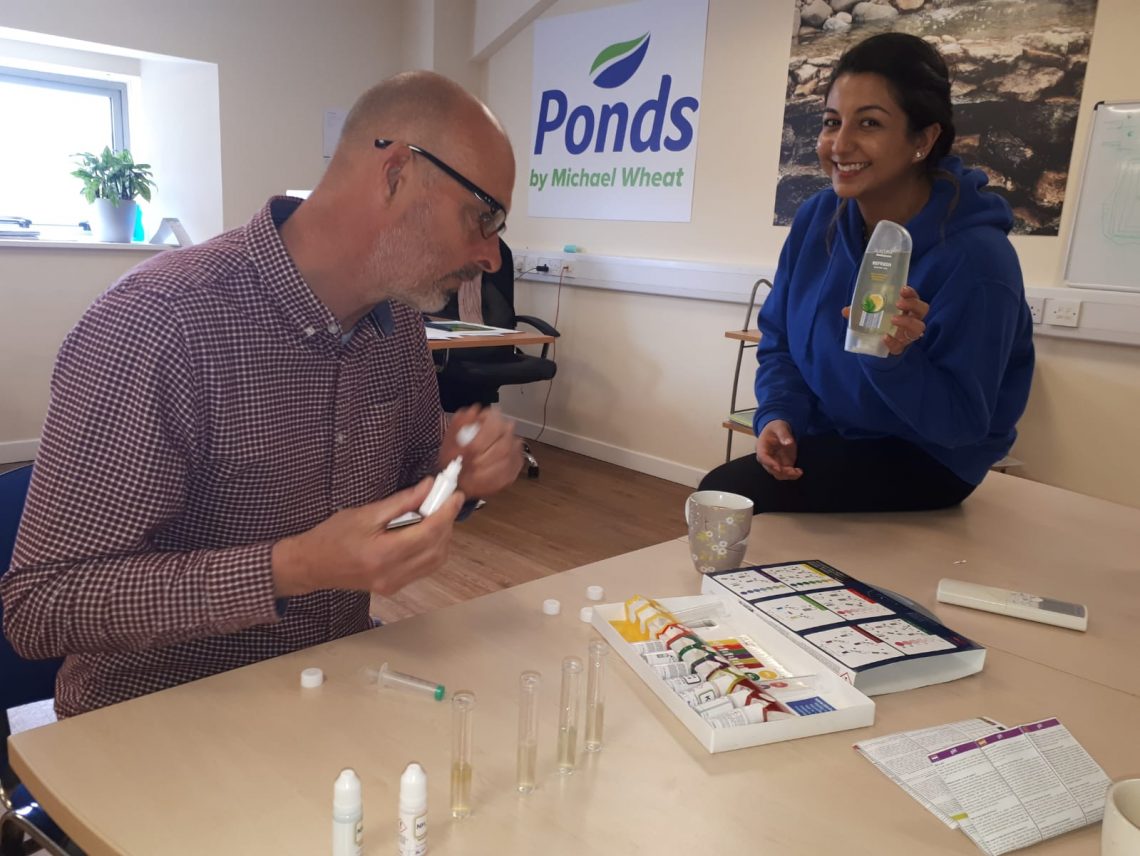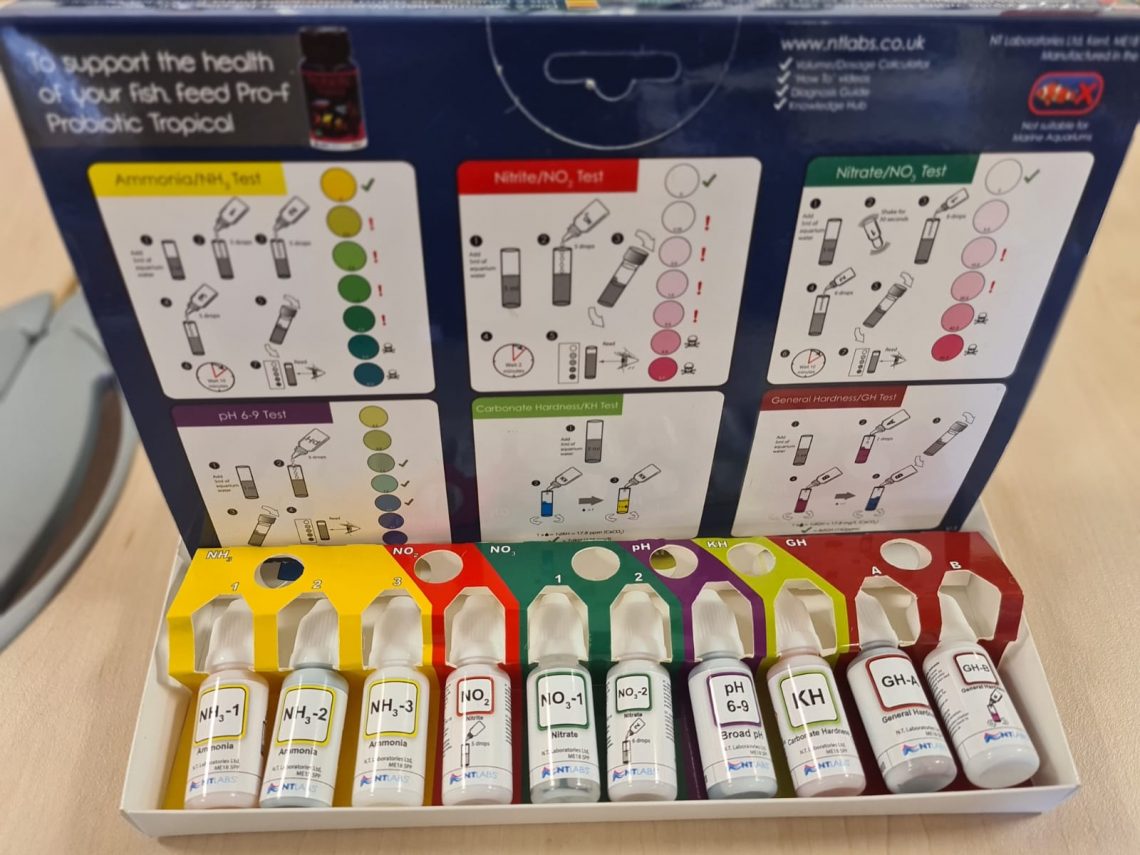When a new enquiry comes in and the client goes ahead with our design plan, one of the first things the consultant does on site is test the water. If you have an existing pond we will test the water quality. If you installing a new project, we’ll test the mains water supply before we fill the pond. We do these tests to offer the perfect combination of filtration UV and planting and suggest any regular treatments that ponds may need.
Ponds By Michael Wheat Test For:
- PH Levels
- Nitrates
- Nitrites
- Phosphates
- Ammonia

We have a water testing kit on all our vehicles and it is imperative to make sure the levels are balanced in your pond to ensure the ecosystem continues to be healthy.
Why Do We Test For These Chemicals?
pH Level: It is essential to maintain an average pH level of between 6.5 and 9. Any higher or lower could poison the water for you or your fish. Fish have an average blood pH of 7.4, so pond water with a pH close to this is optimum.
Nitrates: Nitrates are naturally occurring chemicals in the water. High nitrate levels are unsafe for fish and can disrupt the ecosystem. Nitrates are the final product of the nitrogen cycle that occurs in ponds where there are not enough plants to remove nitrates naturally from the water.
Nitrites: Nitrite is a naturally occurring chemical in your pond and is created through the breakdown of ammonia by bacteria. High levels would suggest a faulty filtration system (or lack of) or the over stocking of fish.
Phosphates: Fish or animal waste releases a large amount of phosphate into the pond water. Mains water supply also has increasingly high levels of phosphates too, which need assessing. High levels of phosphate are a substantial cause of green water and algae so must be bought down with absorbing treatments.
Ammonia: Ammonia is harmful to fish and water. Decaying food and animal or fish waste cause high levels of ammonia.
Take a look at an example of a water testing kit:

We want to make sure your pond is perfect for fish, humans or any pets that want to take a dip. Get in touch with us now for more information about pond pollution and water testing.